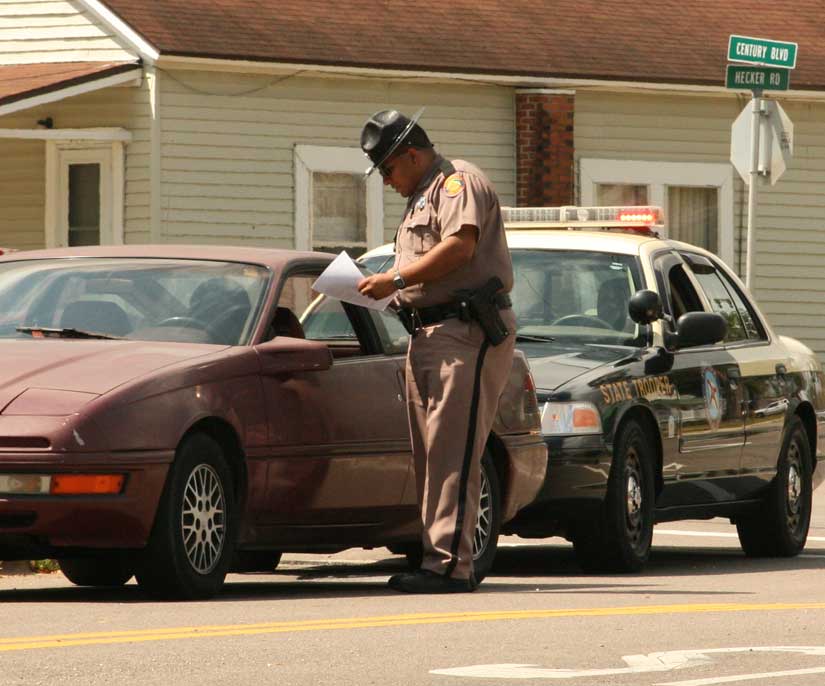Upper 70’s Again Today
December 27, 2015
Here is your official North Escambia area forecast:
Sunday: A slight chance of showers, then a chance of showers and thunderstorms after noon. Patchy fog before 9am. Otherwise, mostly cloudy, with a high near 77. Southeast wind 5 to 15 mph, with gusts as high as 20 mph. Chance of precipitation is 30%.
Sunday Night: Showers and thunderstorms likely, mainly after midnight. Cloudy, with a temperature rising to around 75 by midnight. Southeast wind 10 to 15 mph, with gusts as high as 20 mph. Chance of precipitation is 60%.
Monday: Showers and thunderstorms. High near 73. South wind 10 to 15 mph, with gusts as high as 20 mph. Chance of precipitation is 80%.
Monday Night: A 30 percent chance of showers. Mostly cloudy, with a low around 53. South wind 5 to 10 mph becoming northwest after midnight.
Tuesday: A 20 percent chance of showers. Partly sunny, with a high near 68. Northwest wind around 5 mph becoming southeast in the afternoon.
Tuesday Night: Showers likely and possibly a thunderstorm. Mostly cloudy, with a low around 62. East wind around 5 mph becoming south after midnight. Chance of precipitation is 60%.
Wednesday: Showers and thunderstorms likely. Cloudy, with a high near 72. South wind 5 to 10 mph becoming west in the afternoon. Chance of precipitation is 70%.
Wednesday Night: Showers likely and possibly a thunderstorm. Cloudy, with a low around 55. West wind around 5 mph becoming north after midnight. Chance of precipitation is 60%.
Thursday: A 50 percent chance of showers. Mostly cloudy, with a high near 62.
Thursday Night: A 20 percent chance of rain. Mostly cloudy, with a low around 44.
New Year’s Day: A 20 percent chance of rain. Mostly cloudy, with a high near 55.
Friday Night: Mostly cloudy, with a low around 38.
Saturday: Mostly sunny, with a high near 51.
Holiday Travel Up As Gas Prices Head Down
December 27, 2015
Gas prices for this Christmas weekend were below $2 per gallon for the first time in seven years, according to the latest numbers from AAA.
The average price per gallon of regular unleaded gas was $1.99 Saturday in Escambia County, compared to $2.29 one year ago and a slight increase from $1.96 one month ago. Several stations in Escambia County were as low as $1.89 per gallon on Saturday.
AAA projects the number of year-end holiday travelers will top 100 million for the first time on record. Nearly one in three Americans will take a trip this holiday season, with 100.5 million expected to journey 50 miles or more from home. This represents a 1.4 percent increase over last year and the seventh consecutive year of year-end holiday travel growth. The year-end holiday travel period is defined as Wednesday, December 23, 2015 to Sunday, January 3, 2016.
The increase in holiday travel this year is being driven by continued improvement in the labor market, rising incomes and low prices, including gas prices that remain well below last year’s levels. This is helping boost Americans’ disposable income, but some consumers continue to remain cautious about their finances as they head into the holiday season.
Troopers Remain Out In Force
December 27, 2015

The Florida Highway Patrol remains out in force on the highways to provide assistance to motorists, as well as to get impaired drivers off the road during the holiday weekend.
If you need help or see someone driving who you think might be impaired, call *FHP (*347) on your cell phone.
Over 2,000 crashes per day occurred on Florida roads in the days before Christmas last year as people traveled for the holidays.
To make sure you get to your holiday destination and back home safely, FHP has the following travel tips:
- Your seat belt is your vehicle’s best safety feature. Buckle Up!
- Don’t drink and drive. If you are planning to have drinks, make sure you have a designated driver to make sure everyone gets home safely.
- Don’t drive distracted. Keep your eyes on the road, hands on the wheel and mind on driving.
- Get plenty of rest before you head out on your journey. Drowsy driving can be just as dangerous as drunk driving.
- Obey the speed limit and practice courtesy on the highway. You’re not the only one trying to get somewhere for the holidays.
The holiday enforcement campaign continues through January 3, 2016.
Pictured: A FHP traffic stop in Century. NorthEscambia.com file photo, click to enlarge.
Putnam Seeks Money For Rural Lands, Firefighter Raises
December 27, 2015
Florida’s agriculture commissioner wants raises next year for state forestry firefighters, as well as money to buy and maintain active farm land — items not included in Gov. Rick Scott’s recommended budget.
Agriculture Commissioner Adam Putnam, outlining his priorities to reportersk, said he is lobbying lawmakers to include $25 million to keep the Rural and Family Lands Protection program active. Also, he wants lawmakers to provide $2,000 raises for the nearly 1,000 forestry firefighters and support staff, an idea that Scott vetoed earlier this year.
 “They are deserving of this pay increase,” Putnam said during a meeting with reporters Wednesday at the Capitol. “They put themselves at risk to protect lives and property in our state. And I hope we can work that through the process.”
“They are deserving of this pay increase,” Putnam said during a meeting with reporters Wednesday at the Capitol. “They put themselves at risk to protect lives and property in our state. And I hope we can work that through the process.”
The raises are part of a $10 million request regarding the forestry department. The majority of the money would help the agency update firefighting equipment.
Overall, Putnam’s Department of Agriculture and Consumer Services has made a request for a 4 percent increase in funding, which includes $18.7 million to help the citrus industry and $26 million for water-quality projects and to implement and monitor agricultural “best management practices” statewide. The request also seeks to add the equivalent of eight full-time employees to oversee the agricultural “best management practices.”
Putnam is also seeking $25 million for the Rural and Family Lands Protection program, which allows farmers and ranchers to continue using their land while the state is able to keep those parcels from being developed.
“It really has accounted for the bulk of the conservation purchases that have been made the last several years,” Putnam said.
The current year’s budget includes $15 million for the rural lands program, but Scott didn’t include the program in his proposed $79.3 billion budget for the fiscal year that will start July 1.
Scott is asking for $62.8 million for the land-acquisition program Florida Forever, $188 million for work to improve the Everglades and Lake Okeechobee and another $50 million to help maintain the state’s natural springs.
Earlier this year, the Legislature put about $1.6 million in the 2015-16 budget for forestry raises, but the line item was cut by Scott.
Scott told reporters after signing the overall budget in June that he has advocated for performance bonuses for state employees. However, at the same time, Scott defended $2.6 million in pay increases that were included in the budget for employees of the Department of Highway Safety and Motor Vehicles as “they’re seeing a shortage of applicants, and so that was the rationale.”
Putnam, who is widely expected to run for governor in 2018, said he doesn’t take vetoes personally.
“(Scott’s) got to make a lot of difficult decisions,” Putnam said. “Sometimes you like them. Sometimes you’re disappointed in them. And we’re just going to continue to work hard and make our case.”
Putnam is backing a compromise water-policy proposal (SB 552 and HB 7005) that is expected to be among the first issues brought up for votes in the House and Senate when the regular session begins Jan. 12. He also is seeking $15 million to help improve water coming into and out of Lake Okeechobee and $7 million for the northern Everglades and the state’s natural springs.
The northern Everglades and springs funding would be tied to cost-sharing programs with farmers to better manage runoff and to conserve water, Putnam said.
Putnam also defended the Legislature’s plan this year for carrying out a voter-approved initiative that calls for setting aside money for land and water conservation.
The initiative, known as Amendment 1, requires 33 percent of an existing tax on real-estate documents to go to land buying and maintenance.
Two lawsuits have been filed that contend the legislature’s use of $237 million of the Amendment 1 money in the current year was improperly diverted from conservation purposes to agency staffing and operational expenses.
Putnam said Amendment 1 shouldn’t be “a candy jar,” but that people should expect that some money will be used for the upkeep of public lands.
“In managing a world-class state park system, there is an expectation that the bathrooms will work, that the roads will be in passable shape for the average minivan not to get stuck, that hiking trails will be safe, that bridges — where there are bridges — will be safe,” Putnam said. “Those are legitimate Amendment 1 expenses.”
by Jim Turner, The News Service of Florida
Saturday Night Traffic Stop Nets Drugs, Cash
December 27, 2015
The Flomaton Police Department recovered a quantity of drugs, drug paraphernalia and cash during a routine traffic stop Saturday night.
After receiving an alert from an assisting K-9 unit from the Castleberry (AL) Police Department, officers found methamphetamines, marijuana, synthetic marijuana or spice, and digital scales in the vehicle. The driver was arrested and booked into the Escambia County Detention Center Brewton.
The name of he driver and the exact charges have not yet been released by the Flomaton Police Department as they continue their investigation.
Courtesy photo for NorthEscambia.com, click to enlarge.
Gulf Power Donates To Veterans Organizations
December 27, 2015
Gulf Power CEO and President Stan Connally recently presented checks to three organizations — Members of Building Homes for Heroes, the University of West Florida’s Military & Veterans Resource Center and the Special Operations Warrior Foundation. Each of these organizations supports veterans and their families. The charity proceeds were raised during the third annual Clay Shoot event in November at the Santa Rosa Shooting Center. More than $90,000 was distributed. Courtesy photo for NorthEscambia.com, click to enlarge.
Sheriff’s Office Seeks Two For Questioning In Murder
December 27, 2015
The Escambia County Sheriff’s Office is looking to speak with two people after a recent murder.
Kelvin Dwayne Clemson (pictured left) and Clifford Bernard Gandy, both 25-years old, are wanted for questioning only in the homicide of Raymond Stokes. Stokes was shot and killed on West Jackson Street on December 22.
If you have any information on their whereabouts or the shooting, call the Escambia County Sheriff’s Office at (850) 436-9630 or Crime Stoppers at (850) 433-STOP.
Florida Gov’t Weekly Roundup: The Year Of Governing Messily In Florida
December 27, 2015
It was the year of governing messily in Florida. That is, when state officials were governing at all.
As 2015 wound down, four legislative sessions had been held; three of them ended in failure, and the fourth only succeeded with the threat of a government shutdown looming. Gov. Rick Scott spent much of the year on the road and away from the squabbling in the Legislature, but he also had to shake the biggest political crisis in his nearly five years in office.
 Two of the three redistricting plans passed by the Legislature in 2012 — one of them tweaked in 2014 — were declared unconstitutional, either by the courts or by lawmakers themselves. The Department of Education wrestled with an embarrassing technology meltdown.
Two of the three redistricting plans passed by the Legislature in 2012 — one of them tweaked in 2014 — were declared unconstitutional, either by the courts or by lawmakers themselves. The Department of Education wrestled with an embarrassing technology meltdown.
And in the background was a presidential race where real-estate mogul Donald Trump took the lead for the Republican nomination over a crowded pack of candidates, including two of Florida’s favorite sons: former Gov. Jeb Bush and U.S. Sen. Marco Rubio.
Through it all, the denizens of the Capitol were learning new terms and trivia — the meaning of the Low Income Pool (a hospital program), the significance of Reock scores (a redistricting measurement) and an obscure provision of the Constitution that governs when lawmakers can and can’t leave town. It was educational, entertaining and bizarre. It was a year unlike any other in recent memory — and many in Tallahassee hope it stays unlike any other for quite some time.
LIPSTUCK: THE BUDGET CRISIS
As lawmakers prepared for the annual legislative session that began in March, there were concerns about the Low Income Pool, or LIP, a program that had provided as much as $2.2 billion a year to Florida health-care providers. The federal government was hinting strongly that major changes were coming that could dramatically reduce how much money the state received.
No one expected the issue to make the legislative session go supernova, ending in a spasm of lawsuits and recriminations between the House, the Senate, Scott and the U.S. Department of Health and Human Services. Lawmakers failed to reach a budget deal by the end of the regular session for the first time since 2009, when a recession was ravaging the state’s finances. By the end of the regular session, they couldn’t even agree on what to negotiate about.
Not that the regular session ended as planned. Angered by the Senate’s refusal to drop its insistence on a version of Medicaid expansion backed by federal dollars — which supporters said would help hospitals cope with the loss of LIP funding — the House went home early. The session was scheduled to end May 1, but Speaker Steve Crisafulli, R-Merritt Island, brought the gavel down on April 28.
“I made a promise to you when you elected me to be your speaker that I’d never ask you to vote for something that I wouldn’t vote for myself,” Crisafulli said. “Accordingly, I will not force anyone to expand Medicaid. … I do not see a need to keep you here waiting around, away from your families, away from your businesses, until the Senate decides they are ready to negotiate with us.”
Senate leaders were outraged and said the maneuver violated a little-known (at least until then) provision of the Florida Constitution saying that “(n)either house shall adjourn for more than seventy-two consecutive hours except pursuant to concurrent resolution.” Senate Republicans threatened legal action against the House, but Senate Democrats actually took the step, dramatically marching across the street to the Florida Supreme Court a couple of days later to ask justices to force the House back into session.
Lawmakers were not forced back to the Capitol, but a sharply divided court ruled that the House had violated the Constitution by going home early.
In the meantime, Scott had sued the federal government to try to unlink any discussion of LIP funding and Medicaid expansion. He also called for the Legislature to approve a “continuation budget,” something Senate Appropriations Chairman Tom Lee, R-Brandon, called “a made-up word.”
After a bit of a cooling-off period, lawmakers returned to Tallahassee for a June special session. On June 19 — one day early this time — the House and Senate voted to approve a $78.7 billion spending plan that included state money to help make up for lost LIP funding. The plan also included $300 million worth of spending initiatives that were added close to midnight on the final day of negotiations.
But there was one last reminder of how fractured the state’s Republican establishment had become. Scott used his line-item veto pen to slash more than $461 million from the spending plan, which brought howls of protest from the Senate.
“While I respect the governor’s authority to veto various lines within our budget, his clear disregard for the public policy merits of many legislative initiatives underscores that today’s veto list is more about politics than sound fiscal policy,” said Senate President Andy Gardiner, R-Orlando. “It is unfortunate that the messaging strategy needed to achieve the governor’s political agenda comes at the expense of the most vulnerable people in our state.”
WHOSE LINE IS IT ANYWAY?
Lawmakers had barely cleared out of town — hoping to get free of the Tallahassee bubble for at least a little while — when the Supreme Court ordered them to return. This time, it wasn’t to deal with the state budget, but with the districts used to elect Florida’s 27 U.S. House members.
Leon County Circuit Judge Terry Lewis had already ordered the congressional map tweaked in 2014, when he asked lawmakers to make a relatively minor change to a few districts to fix lines he found to violate the anti-gerrymandering Fair Districts standards approved by voters in 2010.
But in a July 9 ruling, a majority of the Supreme Court essentially found that Lewis was too timid in his ruling and that he deferred to lawmakers too much when deciding which districts should and shouldn’t be thrown out and how drastic any changes should be.
“To do so is to offer a presumption of constitutionality to decisions that have been found to have been influenced by unconstitutional considerations,” Justice Barbara Pariente wrote. “The existence of unconstitutional partisan intent is contrary to the very purpose of the Fair Districts Amendment and to this court’s pronouncements regarding the state constitutional prohibition on partisan political gerrymandering.”
Having lost almost every legal battle over the maps, lawmakers decided to cut their losses on a separate challenge to state Senate districts. The Legislature reached a settlement, conceding that the current Senate map would likely also be found unconstitutional.
“This appears to me to be an unprecedented admission,” crowed David King, a lawyer for voting-rights organizations that fought the maps. “This is remarkable. The Florida Senate has admitted that they drew an unconstitutional map and, as a consequence of that, they now have agreed to fix the problem.”
Special redistricting sessions to redraw the congressional and Senate maps were just as rocky as the regular session had been. In August, lawmakers returned to redraw the congressional districts. But a proposed set of changes to districts along the Interstate 4 corridor prompted another standoff between the House and the Senate. Once again, the session ended without an agreement.
That led to a hearing in front of Lewis, who recommended a plan proposed by the voting-rights groups. The Florida Supreme Court would later agree with Lewis’ recommendation.
A special session in October and November to fix the Senate lines was no more successful. The Senate crafted one version of the lines, the House another. Eventually, Senate leaders agreed to take the House plan to their chamber, where senators voted it down. Lawmakers on both sides blamed the anti-gerrymandering standards that voters approved in 2010 for the latest collapse.
“Having been living intimately in this world, I have concluded that the amendments to our Constitution pulled the soul out of map drawing, pulled the soul out of districts,” said Senate Reapportionment Chairman Bill Galvano, R-Bradenton.
At the end of the year, Leon County Circuit Judge George Reynolds was weighing whether to go with a Senate plan authored by Galvano or one of four plans that the voting-rights organizations asked the court to consider.
I FIRED THE SHERIFF
When he wasn’t flying around the state to talk about jobs, Scott spent the first part of 2015 fighting off perhaps the worst political crisis he has faced since being elected. The situation centered on questions about whether Scott or his staff improperly maneuvered in late 2014 to oust former Florida Department of Law Enforcement Commissioner Gerald Bailey.
Things got curious when, following a January Cabinet meeting at which Rick Swearingen was approved as Bailey’s replacement, Scott offered little insight into the former FDLE head’s departure, saying merely that Bailey had “resigned.”
“Commissioner Bailey did a great job. Commissioner Swearingen, he’s going to do a very good job,” Scott said before essentially repeating the same statement two more times.
Informed of Scott’s comments, Bailey told the Tampa Bay Times that “I did not voluntarily do anything.”
After that, Chief Financial Officer Jeff Atwater said he wanted to review the personnel change at FDLE. For his part, Scott said he wanted the Cabinet to discuss making additional leadership changes at the Office of Insurance Regulation, the Office of Financial Regulation and the Department of Revenue, though such changes ultimately were not made.
Outside groups started to call for investigations into Scott’s role in Bailey’s ouster, and media organizations and open-government advocates filed a lawsuit arguing that the handling of Bailey’s departure violated the Sunshine Law.
Eventually, Scott and the Cabinet — which includes Atwater, Attorney General Pam Bondi and Agriculture Commissioner Adam Putnam — approved new steps to review the work of agencies they jointly oversee. Scott and the Cabinet also agreed to a new selection process for agency heads and to pay about $55,000 in legal fees as part of a settlement to close the Sunshine Law complaint.
TECHNICAL PROBLEMS
For years, testing had been a central part of Florida’s education reform efforts. But when the state rolled out its new Florida Standards Assessments early in the year, a technical meltdown paired with parents’ frustration with perceived over-testing added urgency to efforts to scale back the number of exams given to students.
In a report delivered to Scott, Education Commissioner Pam Stewart called for getting rid of an 11th-grade language-arts test that was viewed as unnecessary. Stewart recommended that Scott issue an executive order to suspend the test, with lawmakers later approving legislation to permanently scrap the assessment — all of which happened.
“I am recommending that we eliminate as much testing as we can,” Stewart told reporters.
But as the new Florida Standards Assessments started being administered, horror stories started pouring out of school districts about technical problems hampering students’ ability to take some of the tests online. Just as the technical problems started to taper off, state officials announced they were investigating a cyber-attack against the program.
Despite all the acrimony of the regular legislative session, the House, Senate and Scott agreed on a bill to address concerns about testing. The bill, for example, put a hold on the use of student test data for school grades, teacher evaluations and student promotion to fourth grade until the Florida Standards Assessments could be independently validated, something that happened months later. It also scrapped a law requiring school districts to come up with end-of-course tests in classes where the state doesn’t administer such exams; capped the amount of time students can spend on state and school district tests at 45 hours a year; and reduced the portion of a teacher’s evaluation tied to student performance from the current 50 percent to one-third.
And more changes could be on the way. By the end of the year, Sen. Don Gaetz, a Niceville Republican who chairs the Senate panel overseeing education spending, said he was crafting legislation that would allow districts to choose “brand names” in the testing world to replace the Florida Standards Assessments.
“The idea is not to take the place of the Florida Standards Assessment,” said Gaetz, a former Okaloosa County schools superintendent. “The idea is to prove an alternative for districts and for students.”
QUOTES OF THE YEAR:
“I think we have three political parties in Tallahassee — the Republicans, the Democrats and the Senate.”—Rep. Matt Gaetz, R-Fort Walton Beach. (June)
“This is the way government should work.”—House Appropriations Chairman Richard Corcoran, R-Land O’ Lakes, after legislative leaders agreed in 30 minutes to 194 projects worth just over $300 million. (June)
“But all I get is squid ink when I talk to these people — a bunch of mumbo jumbo that, ‘well, this is my theory.’ Well, show me in some court precedent. Show me in some legal proceeding. Stop telling me what you want the answer to be and tell me what you think it is based upon the law. And I get nothing.” — Sen. Tom Lee, R-Brandon, expressing frustration as lawmakers tried to redraw Senate districts. (October).
by Brandon Larrabee, The News Service of Florida
Escambia Heath Department Encourages Flu Vaccine For Residents
December 26, 2015
The Florida Department of Health in Escambia County is encouraging residents to get vaccinated against the flu.
Seasonal flu is a contagious respiratory illness caused by influenza viruses that infect the nose, throat and lungs. It can cause mild to severe illness and can sometimes lead to death. The flu season usually begins in early October and lasts until May, peaking in January and February in Escambia County.
 Pregnant women are especially encouraged to get vaccinated. Pregnancy’s effect on the immune system can cause a more severe infection leading to poor outcomes for both mother and baby. Others who should get vaccinated include caregivers of infants younger than 6 months, infants and children older than 6 months, and adults 65 and older. It is also important for those with chronic health conditions such as asthma, diabetes, and heart or lung disease to get vaccinated.
Pregnant women are especially encouraged to get vaccinated. Pregnancy’s effect on the immune system can cause a more severe infection leading to poor outcomes for both mother and baby. Others who should get vaccinated include caregivers of infants younger than 6 months, infants and children older than 6 months, and adults 65 and older. It is also important for those with chronic health conditions such as asthma, diabetes, and heart or lung disease to get vaccinated.
Flu vaccine may be given as a shot or a nasal spray. The flu shot is approved for use in people 6 months of age and older, including people with chronic medical conditions and pregnant women. The nasal spray is approved for use in people 2 through 49 years of age who do not have underlying medical conditions and are not pregnant. Flu vaccines are available at many physicians’ offices, clinics, and local pharmacies. The vaccine takes approximately two weeks to become fully effective.
Symptoms of the flu may include cough, sore throat, runny or stuffy nose, body aches, headache, chills, fatigue, and fever. Some people may also experience diarrhea and vomiting. Health officials advise individuals who are at risk of complications from influenza to contact their physician immediately if flu symptoms appear. Individuals should see a physician early, as antiviral medications may be effective in reducing the severity of symptoms or the length of the illness.
Individuals can protect themselves and their families from the flu by practicing preventive behaviors. While the best way to prevent the flu is by getting vaccinated every year, frequent hand washing is another important key to prevention. Other healthy behaviors such as avoiding close contact with those who are sick, getting plenty of sleep, being physically active, and eating nutritious food can also help to prevent getting the flu.
Individuals can spread the flu to others before they even know they are sick. The most effective ways to avoid spreading the flu are by covering coughs and sneezes with the elbow rather than the hand and by staying home when sick.
Woman Dies In Christmas Day Wreck On Chumuckla Highway
December 26, 2015
A Pace woman died in a Christmas Day traffic crash.
 According to the Florida Highway Patrol, 43-year old Jennifer Michel Neal of Pace was traveling south on Chumuckla Highway about 7:39 a.m. when her Dodge Caliber left the roadway and ran into a concrete ditch. The vehicle then struck a concrete culvert before coming to rest in a driveway.
According to the Florida Highway Patrol, 43-year old Jennifer Michel Neal of Pace was traveling south on Chumuckla Highway about 7:39 a.m. when her Dodge Caliber left the roadway and ran into a concrete ditch. The vehicle then struck a concrete culvert before coming to rest in a driveway.
Neal was transported to Sacred Heart Hospital where she was later pronounced deceased.






